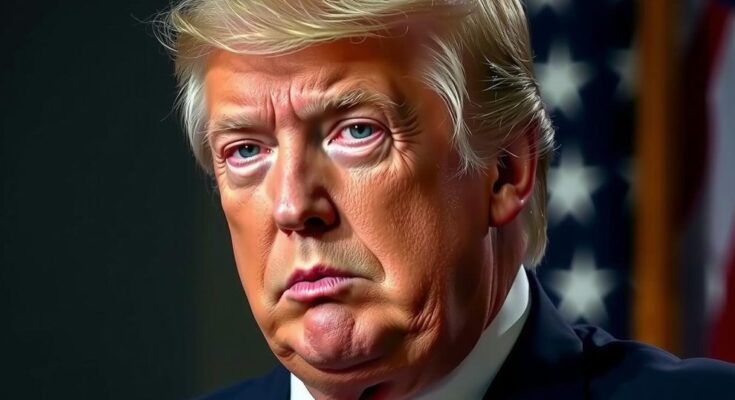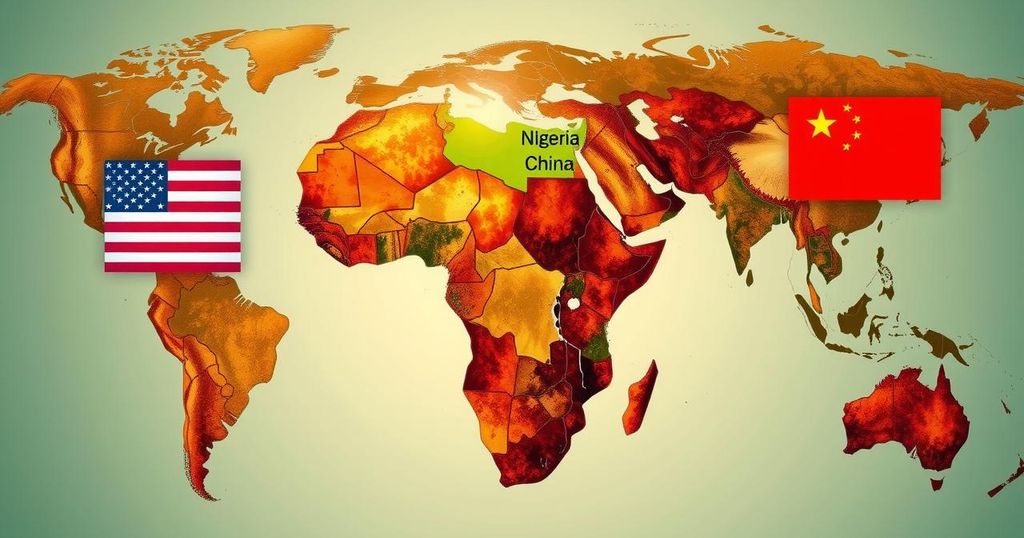As Election Day nears, Donald Trump expresses anxiety despite his team’s optimistic projections. Internal polling suggests a stronger position than in 2020, but concerns about male voter turnout persist among conservatives. Amidst flashy rallies and aggressive election integrity strategies, Trump intensifies his campaign efforts with multiple appearances in North Carolina, underscoring a determination to win crucial swing states.
As Election Day approaches, former President Trump is exhibiting signs of heightened anxiety, despite his team projecting confidence regarding his electoral prospects. According to sources, Trump has been increasingly inquisitive about his standing in the race and has demanded intensified efforts from his aides. This restlessness has informed his recent campaign strategy, which prominently features vibrant rallies and media antics, alongside his persistent claims concerning voter fraud. An internal memo from Tony Fabrizio, who has been the chief pollster for Trump’s past campaigns, reportedly indicated that Trump finds himself in a stronger position this election cycle compared to the 2020 race. Nevertheless, Trump’s anxiety has materialized through late-night and early morning consultations with his staff, during which he seeks reassurance regarding his likelihood of victory. This sense of trepidation is not limited to Trump alone, as several conservative factions within the Republican Party have expressed concerns regarding early voter turnout, particularly among male voters. It is posited that if early voting trends, which have shown heavier participation from female voters, continue, it could jeopardize Trump’s chances against Kamala Harris. In response to these concerns, conservative figures, such as Turning Point USA’s Charlie Kirk, have emphasized the urgency for male voters to participate actively in the election. The final days leading up to the election have seen Trump engaging in high-profile events, including a rally at Madison Square Garden, amidst various controversial remarks from speakers at the event. Trump’s campaign has also been marked by a significant financial investment in efforts to secure electoral integrity, which includes extensive collaborations with poll workers and the initiation of lawsuits surrounding potential voting issues. Furthermore, Trump has expressed that, should he lose the election, he would attribute the failure to Republican National Committee Chair Michael Whatley, who has been instrumental in organizing the election integrity unit. Over the course of the next few days leading to Election Day, Trump is scheduled to make multiple appearances in North Carolina, as his campaign hopes these visits will bolster his performance within the crucial swing state. In conclusion, Trump’s campaign is characterized by a mix of anxiety regarding voter turnout and a strategy to leverage his visibility in key battlegrounds. Despite his team’s confidence, the prevailing sentiments within the Republican Party reflect a broader concern that early voting patterns may hinder Trump’s electoral success.
The current political landscape is defined by an impending election in which Donald Trump is a prominent candidate. With polls indicating a closely contested race against Kamala Harris, Trump’s campaign team navigates both buoyant internal evaluations and palpable anxiety from their candidate. The dynamics of voter turnout and demographic engagement, particularly concerning gender, play a critical role in the potential outcomes of the election.
In light of the upcoming Election Day, Donald Trump’s campaign is marked by a duality of confidence bolstered by internal polling and underlying anxiety stemming from uncertainties related to voter turnout, especially among male voters. Trump’s efforts to maintain visibility and connect with constituents in pivotal states are crucial as his campaign aims for success in an election deemed highly competitive.
Original Source: www.axios.com




